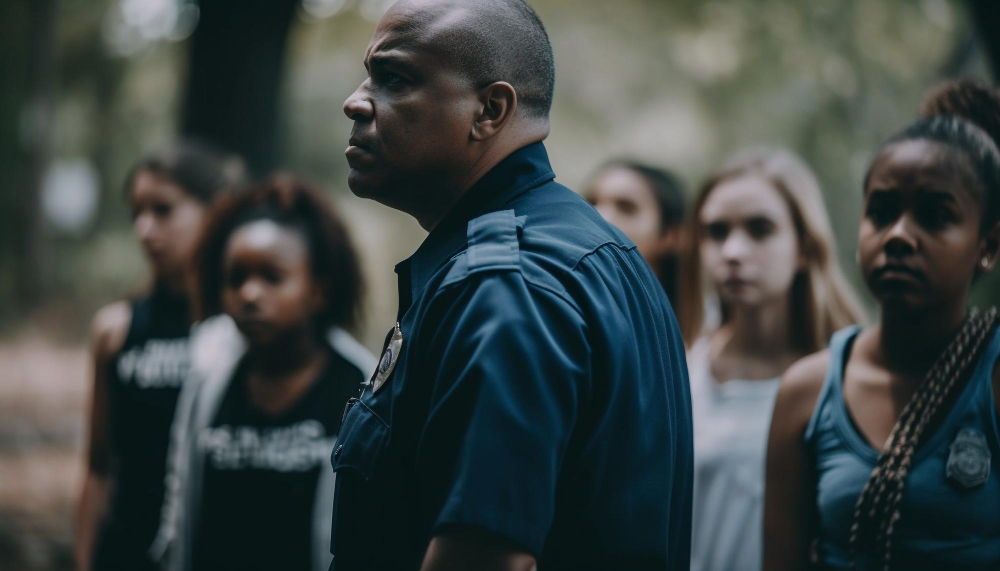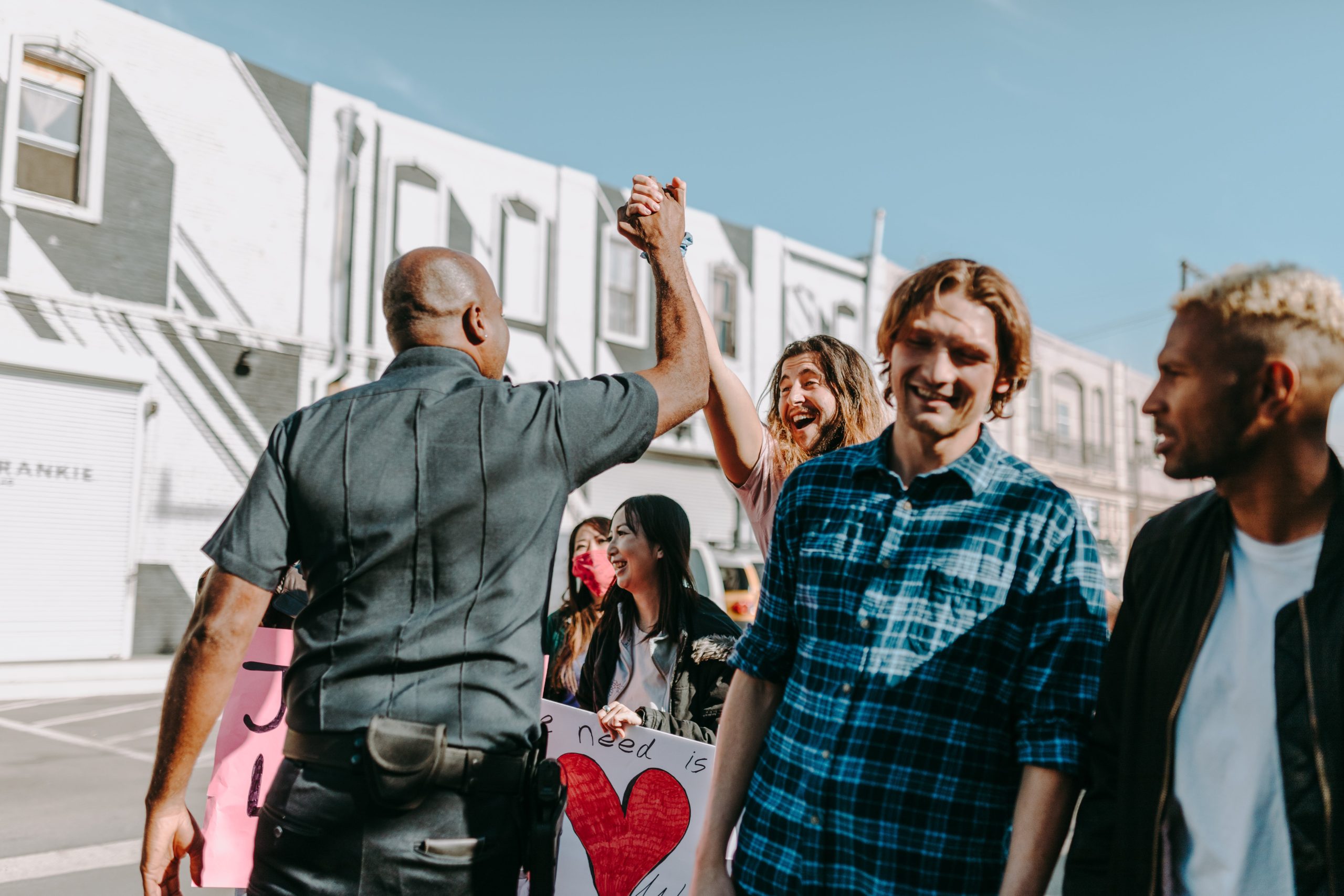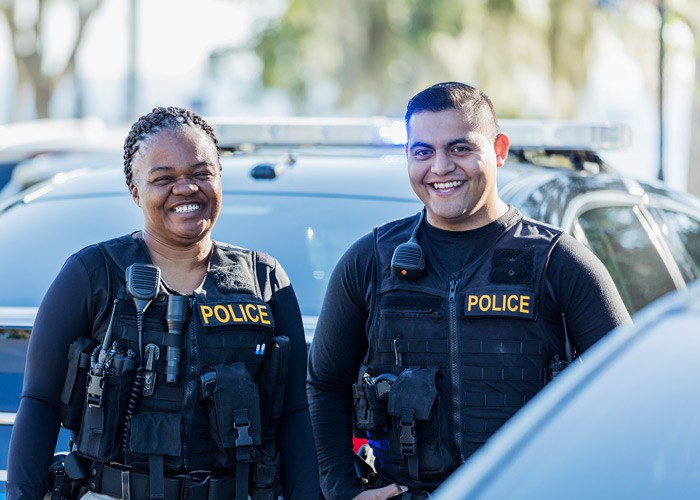Trust in law enforcement has declined sharply in recent years, reaching historic lows. According to a 2022 Pew Research study, only 45% of U.S. adults reported having at least a fair amount of confidence in police to treat racial and ethnic groups equally, down from 57% in 2016. This erosion of trust stems from high-profile incidents of police misconduct and brutality, as well as broader systemic issues around racial bias, lack of accountability, and excessive use of force. Rebuilding community trust in law enforcement is essential, but it requires a fundamental shift in policing strategies and culture.
Community Engagement is Key
Experts widely agree that more extensive community engagement and partnership are vital for improving police-community relations. Police departments that actively engage with residents through forums, advisory councils, neighborhood meetings, and other initiatives see significant benefits. In Camden, NJ, for example, dissolving the previous police force and creating a county-wide one focused on community policing led to a 23% drop in violent crime between 2012-2018, even as crime rose nationally. Similarly, the Dallas Police Department’s innovative youth outreach and engagement programs have helped reduce juvenile arrests by 60% over the past decade. More extensive community involvement enables residents to voice concerns, provide input on policies, and collaborate on finding solutions. Departments must prioritize open communication, transparency, and relationship building to regain legitimacy.
Advances in Training and Accountability
Alongside community engagement, improvements in police training, accountability, and oversight systems are also rebuilding trust. Per a 2021 Department of Justice report, 40 of the 50 largest US police departments now require de-escalation training to minimize use of force. Early research shows this training leads to significant reductions in civilian injuries during police encounters. Advocates have also called for more focus on crisis intervention, bias awareness, and non-violent restraint tactics. On accountability, cities like Chicago and New York have implemented strong civilian oversight boards and special prosecutors to investigate police misconduct claims impartially. Robust early intervention programs that spot high-risk behaviors have also proven effective. In Las Vegas, implementing such a system contributed to a 23% drop in officer-involved shootings between 2012-2016. Modernizing training and accountability measures is challenging, but vital for aligning policing with 21st century realities.
Leveraging Technology
Technological innovations provide another avenue for improving transparency and rebuilding trust. Body cameras are now used by over 80% of police departments, providing powerful visual evidence and promoting civil behavior during community interactions. Studies show officers wearing cameras use force 40-50% less often. Similarly, “smart car” recording systems, mobile apps allowing residents to submit footage of misconduct, and centralized open data hubs all enable greater transparency. On the community relations side, social media and targeted outreach platforms allow police to directly engage residents, communicate during emergencies, and solicit feedback. The Dallas PD’s iWatch program, for example, allows anonymous reporting of suspected criminal activity via a dedicated app. Embracing technology strengthens accountability while also fostering collaborative, responsive relationships.
Introducing Officer Survey
One particularly promising new platform is Officer Survey, an online community and employee engagement tool designed exclusively for police departments. Officer Survey enables departments to easily create and distribute surveys to two key groups: community members and department employees. For the community, surveys can gather feedback on recent interactions, satisfaction with police services, perceptions of safety, priority issues, and other topics. Internally, surveys provide a secure channel for officers to voice concerns, give input on policies, and share ideas for improvement. This two-pronged approach delivers unprecedented insights.
The platform’s unique methodology focuses not just on whether community members “liked” an interaction but on understanding the “how” and “why” behind perceptions. Standardized follow-up questions ask about specific elements like officer demeanor, communication style, professionalism, responsiveness and more. This granular feedback provides actionable data to guide improvement efforts. Survey results are anonymized but tied to individual officers, enabling tailored coaching and development. No other platform delivers this level of targeted, role-based community engagement and internal communication capabilities.
Officer Survey: A New Model for Community Relations
Early adoption of Officer Survey demonstrates the platform’s immense potential for strengthening community relations. The Los Angeles County Sheriff’s Department has used the tool since late 2022, collecting over 30,000 community surveys to date. Analysis reveals 80% approval of deputies’ professionalism, politeness, and helpfulness during interactions. However, only 60% were satisfied with response times, signaling an area for improvement. Internally, surveys identified a strong desire among officers for enhanced de-escalation and mental health crisis training. Implementing this training is now a department priority. For LA County and other agencies, Officer Survey provides both macro-level sentiment tracking and micro-level behavioral insights to guide reforms.
The platform’s unmatched granularity is equally powerful for individual officers. All survey results tied to a specific officer are compiled into a personal Response Report documenting historical performance. Positive feedback highlights strengths, while constructive criticism identifies development areas. Response Reports also benchmark individual officers against department averages, enabling tailored coaching. Surveys from Partner Perspective, a feature allowing friends and family to weigh in, provide further context. This multidimensional feedback loop promotes growth and excellence.
Officer Survey: Driving Positive Change
Public trust in law enforcement has suffered greatly in recent years, but platforms like Officer Survey offer a path forward. Combining broad-based community surveys with highly personalized feedback tightens the connection between police departments and the communities they serve. This fosters the transparency, accountability, and collaboration necessary to heal relationships and enact positive change. Officer Survey empowers officers with tools to continuously improve while allowing residents to feel heard. As police departments across the nation take up this new model, the future of law enforcement looks brighter.






